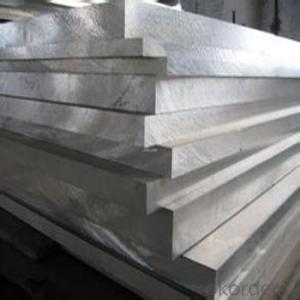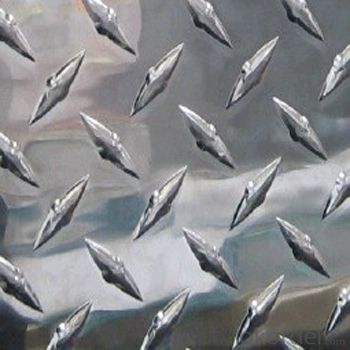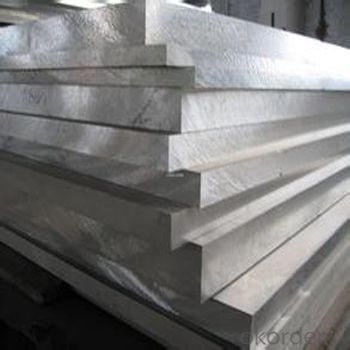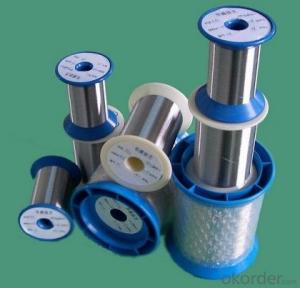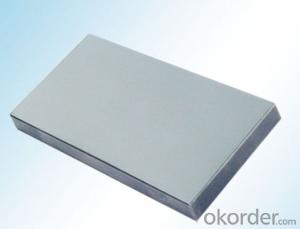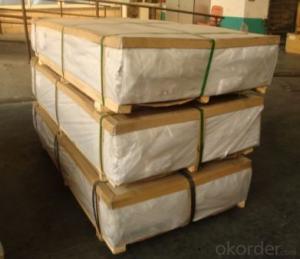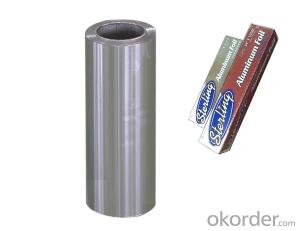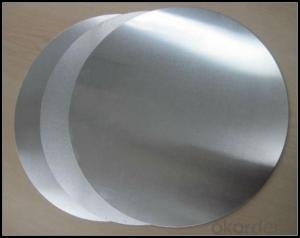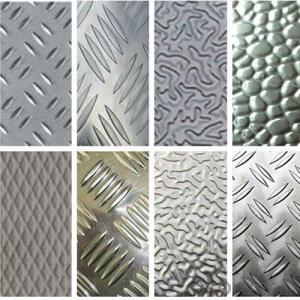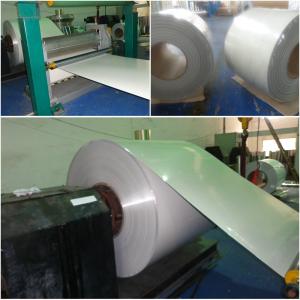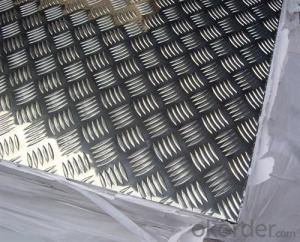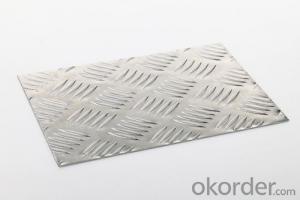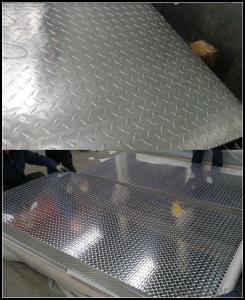Embossed Aluminum Tread Plate Sheets Coil Foil Strip
- Loading Port:
- Shanghai
- Payment Terms:
- TT or LC
- Min Order Qty:
- 3 m.t.
- Supply Capability:
- 300 m.t./month
OKorder Service Pledge
OKorder Financial Service
You Might Also Like
1.Description
Aluminium foil (or aluminum foil) is aluminium prepared in thin metal leaves with a thickness less than 0.2 millimetres (8 mils); thinner gauges down to 6 micrometres (0.24 mils) are also commonly used.In the United States, foils are commonly gauged in thousandths of an inch or mils. Standard household foil is typically 0.016 mm (0.63 mils) thick, and heavy duty household foil is typically 0.024 mm (0.94 mils). Thefoil is pliable, and can be readily bent or wrapped around objects. Thin foils are fragile and are sometimeslaminated to other materials such as plastics or paper to make them more useful. Aluminium foil supplantedtin foil in the mid 20th century.
Annual production of aluminium foil was approximately 800,000 tonnes (880,000 tons) in Europe and 600,000 tonnes (660,000 tons) in the U.S. in 2003. Approximately 75% of aluminium foil is used for packaging offoods, cosmetics, and chemical products, and 25% used for industrial applications (e.g. thermal insulation, cables and electronics).
In North America, aluminium foil is known as aluminum foil. It was popularized by Reynolds Metals, the leading manufacturer in North America. In the United Kingdom and United States it is, informally, widely called tin foil, for historical reasons (similar to how aluminum cans are often still called "tin cans").Metallised films are sometimes mistaken for aluminium foil, but are actually polymer films coated with a thin layer of aluminium. In Australia, aluminium foil is widely called alfoil.
2. Our advantage:
We can supply best quality and best price!
3.Specification and application
EMBOSSED ALUMINIUM SHEET EMBOSSED ALUMINIUM SHEETS ALUMINIUM SHEETS
ALLOY : AA1***(AA1050,AA1060,AA1070,AA1100etc)
AA3***(AA3003,AA3004,AA3005,AA3105etc)
AA5***(AA5052 etc)
TEMPER:H14,H18,H24,H26,H32
THICKNESS:0.2mm-20mm
WIDTH:10mm-1500mm
EMBOSSED PATTERNS : Diamond, stucoo,bars etc
STANDARD: GB/T3880-2006
Special specification is available on customer's requirement
ALUMINIUM CIRCLE
ALLOY:AA1***(AA1050,AA1070,AA1100etc)
AA3***(AA3003 etc)
TEMPER:O,H14
THICKNESS:0.5mm-4mm
DIAGONAL:100mm-1200mm
STANDARD:GB/T 3880-2006
Special specification is available on customer's requirement
4.Pictures
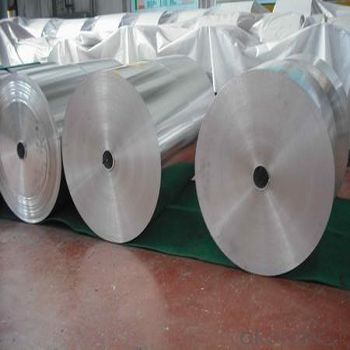
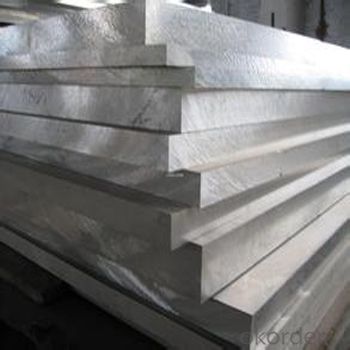
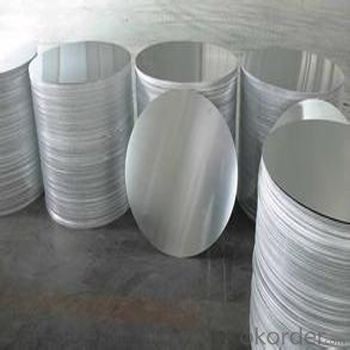
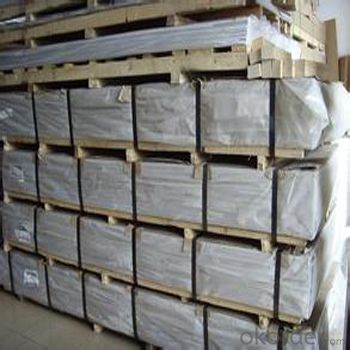
5.FAQ
1)How about our payment term?
LC and TT and other.
2)Which country can we supply?
All around the world!
- Q: How are aluminum sheets typically packaged for shipping?
- Aluminum sheets are typically packaged for shipping in a few different ways depending on the size and quantity of the sheets. One common method is to bundle the sheets together using metal or plastic strapping. The sheets are stacked on top of each other, with a layer of protective material such as foam or cardboard between each sheet to prevent scratching or damage. The bundle is then secured with strapping to keep the sheets tightly together during transit. For smaller quantities or smaller sheets, aluminum sheets may be packaged in boxes or crates. The sheets are carefully placed inside the box or crate, often separated by protective material to prevent rubbing or contact between the sheets. The box or crate is then sealed and labeled for shipping. In some cases, aluminum sheets may be packaged on pallets. Multiple sheets are stacked on a pallet, again with protective material between each sheet. The sheets are secured to the pallet using stretch wrap or shrink wrap to ensure stability during transportation. Regardless of the packaging method used, it is important to properly label the packages with relevant information such as the contents, weight, dimensions, and any special handling instructions. This helps to ensure that the aluminum sheets are handled and shipped correctly, reducing the risk of damage or loss during transit.
- Q: I got nauseous the other day and that day one thing I ate was hamburger baked for 1 hour on aluminum foil with tomatoes mixed in. Is it possible the upset stomach was caused by the tomatoes reacting with the foil?
- no that wouldn't make you sick. i line all my pans with foil before baking because it makes it much easier to clean the pans.
- Q: what's the size of aluminum sheet circle?
- aluminum sheet circle's texture 1060, 3003 thickness 0.4-5.0mm, diameter 190-760mm.
- Q: I had this mandarin orange can. I filled the can with water. Four days later, there are quarter inch thick rust cakes on the inside of the can. Since I assume the can is aluminum, are these cakes aluminum oxide? If so, is it flammable and/or dangerous?
- Aluminum oxide is white and powdery in texture. It also takes a bit longer for aluminum to oxidize than iron, so I don't think you could have cakes of aluminum oxide in 4 days. If the cakes you are describing are reddish in color, then no, it is NOT aluminum oxide. It is good old fashioned ferric oxide- rust from iron.
- Q: What is the elongation percentage of 101 aluminum sheets?
- The elongation percentage of 101 aluminum sheets refers to the amount of deformation or stretching the material can undergo before breaking. The exact elongation percentage of 101 aluminum sheets can vary depending on various factors such as the thickness of the sheets and the specific manufacturing process. However, in general, 101 aluminum alloy is known for its excellent formability and high elongation properties. It typically exhibits elongation percentages ranging from 10% to 30%, which means the material can stretch by that percentage of its original length before fracturing.
- Q: I have tried every possible method that I could find on the web for cleaning aluminum, tungsten, filler wire. Nothing has seemed to work. I've tried looking for leaks in the argon line. I'm getting decent welds but there is gunk in the welds for sure. I'm worried about overall strength of the welds. Does anybody out there know of a tried and true method for cleaning aluminum, tungsten, filler etc. that is sure to work? If I can follow that method and still have problems It could possibly be a problem with the machine. Any help would be much appreciated.
- Preweld cleaning requires two operations: oil/grease removal and oxide removal. As below, remove oils and greases first, then remove the oxide. Don’t reverse this order. Take the following steps before welding aluminum: 1. Remove oil, grease, and water vapor using an organic solvent such as acetone or a mild alkaline solution like a strong soap. You may also use citrus-based degreasers, but be sure to rinse and dry the part before welding. 2. Remove surface oxides with a stainless steel wire brush (used only for aluminum) or strong alkaline or acid. Many welding suppliers sell oxide-removal solutions in spray or squeeze bottles for local application. Exercise extreme care when handling these solutions, and again, rinse and dry the part before welding. 3. Assemble the joint. If it won't be welded immediately, cover the joint with brown Kraft paper to prevent dirt and grit in the air from getting into the joint. 4. Keep the aluminum dry and at room temperature. 5. Weld within a few days. Clean the joint again if it isn't welded within that time. Good luck!!!
- Q: Can the aluminum sheets be used for manufacturing audio amplifier cases?
- Certainly, audio amplifier cases can be manufactured using aluminum sheets. The utilization of aluminum as casing material in audio equipment is highly favored owing to its remarkable combination of lightweight and resilient characteristics. It offers exceptional heat dispersion, a critical aspect for audio amplifiers that generate heat while in operation. Additionally, aluminum can be effortlessly machined and shaped into diverse forms, facilitating customization and aesthetic considerations in the design of the amplifier case. In conclusion, aluminum sheets are a fitting choice of material for the production of audio amplifier cases.
- Q: What are the electrical conductivity properties of aluminum sheets?
- Aluminum sheets possess excellent electrical conductivity properties. Due to its low electrical resistance, aluminum is widely used in various electrical applications. It has a high conductivity rating, only slightly lower than that of copper, making it an effective conductor of electricity. This property allows aluminum sheets to efficiently transmit electrical current with minimal energy loss. As a result, aluminum is commonly utilized in power transmission lines, electrical wiring, and electrical connectors. Furthermore, aluminum's conductivity makes it suitable for applications that require heat dissipation, such as heat sinks in electronic devices. Overall, aluminum sheets are known for their favorable electrical conductivity, making them a preferred choice in numerous electrical and electronic applications.
- Q: How to solve the loose bonding of aluminum sheet and silica gel?
- you can use YH-840 to bond silica gel and aluminum sheet in small area, and it’s hard to tear and will have an effect of destruction and melting, transparent and environmental.
- Q: How is the thickness of aluminum sheets measured?
- The thickness of aluminum sheets is typically measured using a tool called a micrometer. A micrometer is a precision instrument that includes a calibrated screw mechanism with a spindle and anvil. To measure the thickness of an aluminum sheet, the sheet is placed between the spindle and anvil of the micrometer, and the screw is turned to exert pressure on the sheet until it is firmly held in place. The measurement is then read from the micrometer's scale or digital display. Another commonly used method is a thickness gauge, which uses a set of parallel anvils to measure the thickness of the sheet. The sheet is inserted into the gap between the anvils, and the measurement is obtained by reading the scale or display on the gauge. Both methods provide accurate and reliable measurements of the thickness of aluminum sheets.
Send your message to us
Embossed Aluminum Tread Plate Sheets Coil Foil Strip
- Loading Port:
- Shanghai
- Payment Terms:
- TT or LC
- Min Order Qty:
- 3 m.t.
- Supply Capability:
- 300 m.t./month
OKorder Service Pledge
OKorder Financial Service
Similar products
Hot products
Hot Searches
Related keywords

